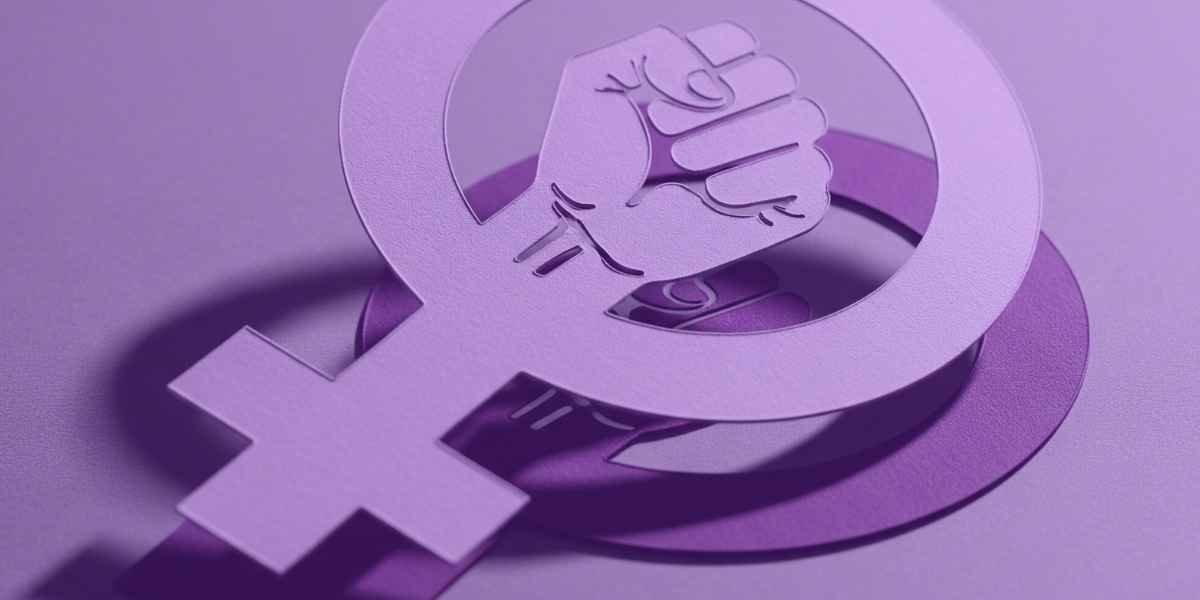Law 14.994/2024, enacted on October 10, 2024, revised certain sections of the Criminal Code (CP) related to crimes of violence against women.
The primary change involved raising the punishment for serious crimes, aimed at protecting the safety, health, and lives of women.
To stay informed about these changes, review the following updates and their effects on the legal system.

What was the situation like prior to Law No. 14,994/2024?
Before Law no. 14.994/2024 was passed, there was no dedicated provision in the Criminal Code for the offense of feminicide. Consequently, this offense was considered an aggravating factor under § 2 of Article 121, which addresses aggravated homicide.
The law also includes important modifications in criminal law, such as offenses involving threats, offenses against reputation, physical harm, and the consequences of a conviction.
The Law of Criminal Contraventions, the Maria da Penha Law, the Law of Criminal Executions, and the Code of Criminal Procedure will come into force with revisions.
The primary reason for changes in various laws governing the Brazilian penal system is the effort to combat the ongoing high levels of violence against women.

What is different now due to Law No. 14.994/2024?
Now, review the primary modifications authorized in depth.
Art. 92 of the Criminal Procedure Code: Consequences of automatic conviction
The article states that conviction for CP results in automatic consequences such as feminicide, loss of family power, and being barred from holding public office.
Let’s take a look at the latest essay.
Article 92 of the Criminal Code.
Family power, guardianship, or curatela cannot be exercised in cases of intentional crimes resulting in a prison sentence committed against family members or descendants, or crimes against women due to their gender.
The impacts of this article are not activated by default and must be explicitly stated in the judge’s ruling, regardless of whether the prosecution requests it, as specified in paragraph III of Paragraph 2 of this article.
Convicted individuals who commit crimes against women based on their gender will be subject to the provisions of Article 121-A, paragraph 1, of this Code.
The effects specified in paragraphs I and II of this article’s main section are applicable.
They ensured their selection or role in any position, public job, or elected position from the time of their conviction until they completed their sentence.
III – automatic consequences of canines I and II from Chapter II of § 2 of this Article.
Art. 121-A of the Criminal Code: Tougher Penalties for Gender-Based Murders
There was no distinct criminal category for the killing of a woman based on her gender.
Feminicide was considered a form of qualified homicide under § 2 of article 121. Refer to the previous essay for more details.
Empowerment of women
Violence against women based on their gender.
Imprisonment – isolation, ranging from 12 to 30 years.
Feminicide is now classified as a self-inflicted crime under Article 121-A of the CPB, with a prison sentence ranging from 20 to 40 years. Let’s examine the updated legislation:
Feminine empowerment
Article 121-A of the Criminal Code pertains to the murder of a woman based on her gender.
Seclusion is a punishment ranging from 20 to 40 years.
Reasons related to being female are taken into account when the crime occurs.
Domestic and family violence.
Disregarding or discriminating against women.
The penalty for feminicide is raised by between one-third and half if the crime is committed.
During pregnancy, in the three months following childbirth, or if the victim is the mother or caregiver of a child, adolescent, or person with disabilities of any age.
Against an individual aged below 14 or above 60, or with disabilities or degenerative diseases causing physical or mental vulnerability.
III – in the presence of the victim’s family member, either in person or online.
IV – violating the immediate protection measures outlined in Articles I, II, and III of Article 22 of Law No. 11.340 dated August 7, 2006 (Maria da Penha Law).
In situations outlined in Articles III, IV, and VIII of Section 2 of Article 121 of this Code.
Co-writer
Paragraph 3 will inform the co-author or party about the basic personal details related to the crime described in Paragraph 1 of this Article.
Article 129 of the Criminal Code deals with criminal responsibility for offenses involving bodily harm.
The previous document specified a jail term of three years for committing domestic violence.
Crimes of physical harm against family members or partners now result in a 2 to 5 year prison sentence.
Essay from the past:
Domestic abuse
If the harm is done to a family member or someone with whom the individual has a close relationship, the severity of the offense is heightened.
Detention for a period of three months to three years is unfortunate.
Please provide the full text that you would like me to paraphrase.
Domestic abuse
If the harm is done to a family member, partner, or someone with whom the person has a close relationship, the severity of the offense is greater.
Seclusion can range from two to five years as a penalty.
Article 141 of the Criminal Code imposes penalties for offenses against one’s reputation.
Art. 141 of the Criminal Code introduces a new provision that doubles the penalty for slander, defamation, and injurious acts committed due to gender-related reasons.
Previous composition
The sentences in this Chapter are extended by one-third if any of the offenses is committed pursuant to Article 141 of the Penal Code.
I oppose the President of the Republic or a foreign government leader.
II – directed towards a public official in the performance of their duties or towards the Presidents of the Federal Senate, the Chamber of Deputies, or the Supreme Court.
In front of a group of people, or by spreading harmful comments, defamation, or insults.
IV – to commit violence against a child, adolescent, individual over 60 years of age, or person with disabilities, unless in the situation specified in § 3 of Article 140 of this Code.
If a crime is committed by offering money or reward, the penalty is doubled.
If the crime is committed or revealed on any social media platforms of the internet, the punishment is tripled.
A recent essay:
The penalties outlined in this Chapter are enhanced by one-third if any of the offenses are committed.
I – directed towards the President of the Republic, or a foreign government leader.
Against public officials in the performance of their duties, or against the Presidents of the Federal Senate, the Chamber of Deputies, or the Supreme Court.
In the presence of multiple individuals, or by helping to spread slander, defamation, or insults.
IV – in relation to a child, teenager, individual over 60 years old, or a person with disabilities, unless in the situation specified in § 3 of Article 140 of this Code.
If a crime is committed by offering payment or reward, a double penalty is imposed.
If the offense is committed or revealed on any forms of social media on the internet, the punishment is tripled.
If the offense is committed against a woman due to her gender, the punishment is doubled according to Article 121, Section 1 of the Code.
Article 147 of the Criminal Code imposes a penalty for the crime of making threats.
Article 147 of the Criminal Code, which defines the offense of making threats, is now in effect with some changes. It includes two additional paragraphs specifying:
- Committing this offense against women due to their gender will result in a dual punishment.
- The criminal offense will not be based on the victim’s representation.
Let’s take a look at Article 147 in its entirety.
Menace
Threatening someone with words, writing, gestures, or other symbolic methods to cause them unfair and serious harm is covered under Article 147 of the Penal Code.
Punishment for a crime can include imprisonment for one to six months or a fine.
If the offense is carried out against the woman due to her gender, the punishment is doubled according to Article 121, Section 1 of the Code.
Representation is the only way, except in the case stated in § 1 of this article.
Increased punishment for triple in the Criminal Contraventions Law (Decree-Law No. 3.688/41).
If the violation of traffic rules is committed specifically against women due to their gender, the punishment will be tripled. Let’s examine the revisions in the text.
Engaging in actions that go against someone in reality.
Penalty for a minor offense could result in imprisonment ranging from fifteen days to three months or a fine ranging from one hundred thousand réis to a tale of réis if the act is not considered a crime.
The penalty is increased by 1/3 to half if the victim is over 60 years old.
The penalty is increased by 1/3 to half if the victim is over 60 years old.
If the violation is committed against a woman due to her gender, the penalty is increased threefold.
Feminicide is considered a heinous crime under the Heinous Crimes Act (Law No. 8.072/90).
The Heinous Crimes Act is changed to acknowledge feminicide as a serious crime.
See the latest essay.
Crimes classified as heinous include those outlined in Decree-Law No. 2.848 of December 7, 1940, whether committed or attempted.
Feminicide is covered under article 121-A.
Maria da Penha Law (Law no. 11.340/06)
The Maria da Penha Law now stipulates a 2 to 5-year prison sentence and fine for failing to comply with protective measures, whereas previously the penalty ranged from 3 months to 2 years.
Observe the transformation.
Old composition:
Article 24-A involves the disassembly of a court decision that supports urgent protective measures outlined in this legislation.
Detention for a period ranging from 3 months to 2 years.
New article:
Article 24-A involves unpacking a court ruling that supports immediate protective measures as outlined in this legislation.
Seclusion ranging from two to five years and a fine are the penalties for pena.
Criminal Execution Law, also known as Law No. 7.210/84
The Penal Execution Act (PLE) is now in force with various important modifications, which we will examine in detail.
- The prisoner does not have access to private or marital visits.
Art. 41 of the LEP has been revised.
Prisoner’s entitlements include:
Spouse, companion, relatives, and friends can visit on specific days.
Prisoners convicted of crimes against women due to their gender may be denied the right to intimate or conjugal visits.
- If a convict or provisional prisoner convicted of domestic or family violence threatens or commits further violence against the victim or their family during their sentence, they will be moved to a prison located away from the victim’s residence.
Check the new draft of the article. 86 LEP.
Private freedom penalties imposed by the Justice of a Federal Unit may be carried out in a different unit, local facility, or the Union.
- Feminists must complete 55% of the penalty to qualify for regime progression, which also applies to the main defendant. Additionally, parole is also restricted.
View the fresh provision 112 of LEP.
The private penalty of freedom will gradually be implemented by moving the prisoner to a less strict regime determined by the judge after meeting certain requirements.
55% of the penalty is returned if the perpetrator is convicted of femicide as a first-time offender under conditional release.
- The electronic anklet must be worn when leaving temporarily.
Article 146-E of LEP is currently in effect.
The offender of a crime against a woman due to her gender will be subject to electronic monitoring upon benefiting from any form of release from a correctional facility as per Article 121-A, section 1 of the Penal Code.
Priority in handling according to the Code of Criminal Procedure (Decree-Law No. 3.689/41)
Processes that prioritize achieving results related to heinous crimes or violence against women will be given precedence over cost considerations.
Acts on Article 364-A of the Criminal Procedure Code.
Processes involving serious crimes or violence against women will be given priority in all stages of processing.
Cases involving violence against women will not depend on the payment of costs, fees, or procedural expenses, except in instances of bad faith.
The exceptions in § 1 of this article only apply to the victim and, if the victim has passed away, to the spouse, parent, child, or sibling who has the right to represent or file a complaint or take legal action.
Duration and Use
Law No 14.994/2024 came into effect when it was published in the Official Gazette of the Union on 10 October 2024.
It applies to all cases started after that date involving the serious crime of feminicide or violence against women.
The Significance of Law No. 14.994/2024 in Combating Feminicide
Law No 14,994/24, which enhances the punishments for feminicide, is a significant advancement in the fight against violence towards women in Brazil.
By increasing the severity of penalties, the law emphasizes the need to provide enhanced safeguarding for victims and reinforces the dedication to justice and human rights.
Effective public policies and preventive measures, including enhancing support for women and promoting rights education, are crucial to ensure tangible and sustainable outcomes in combatting this form of crime.

chsyys/FreePik
What are the modifications brought by Law 14.994/2024?
Law 14.994/2024 established feminicide as a separate criminal offense, punishable by 20 to 40 years of imprisonment.
– He suggested the potential suspension or revocation of the aggressor’s parental rights.
What are the regulations of domestic violence according to the law?
The Maria da Penha Law (Law 11.340/2006) states that any harmful act or failure linked to gender resulting in harm to women in domestic or family relationships is considered a crime. It includes physical, psychological, sexual, moral, or financial damage and requires protective measures, penalties for the perpetrator, and full support for the victim.
What constitutes femicide?
Femicide is the killing of women due to their gender-related circumstances, often occurring in situations involving domestic violence, negligence, or gender bias. It was recognized as a distinct criminal offense in 2024, with harsher punishments.
What constitutes domestic violence?
Domestic violence includes behaviors that result in physical, psychological, sexual, moral, or financial harm to women by family members, partners, ex-partners, or anyone in their household, involving actions like aggression, threats, abuse, and violation of rights.
What is the bail amount for Maria da Penha?
Under the Maria da Penha Law, bail cannot be granted by the police authority for offenses. The decision to grant bail is solely up to the judge on a case-by-case basis. In severe cases like intentional bodily harm, bail may not be an option.
What does the term “crime of passion” mean?
Passional crime refers to a violent act committed impulsively out of strong emotions like anger or jealousy, typically in the heat of the moment within close relationships, often linked to domestic or gender-based violence.
What is the punishment for minor physical harm under the Maria da Penha Law?
In cases of domestic violence against women, causing minor physical harm carries a sentence of three months to three years of imprisonment, which may be increased depending on the circumstances and the need for immediate protective measures.
What laws safeguard women?
Other than the Maria da Penha Law, there exist additional Brazilian legislations safeguarding women.
– Legislation addressing femicide, cybercrime, protection of victims, and laws against harassment and sexual abuse.
What sets feminicide apart from domestic violence?
Domestic violence involves different types of aggression or abuse against women within the family setting, whereas feminicide is the killing of women driven by their gender, often as the most extreme escalation within the cycle of domestic violence.
What does the term psychological violence against women refer to?
Psychological violence towards women involves any behavior leading to emotional harm, reduced self-worth, control over actions, isolation, humiliation, threats, blackmail, or manipulation, as acknowledged and penalized by the Maria da Penha Law.
References cited.
Law number 14,994/24 as published in the Official Gazette.
Penal Code – Decree-Law number 2,848/40
Law of Criminal Contraventions – Decree-Law No. 3.688/41
Heinous Crimes Act – Legislation number 8.072/90
Maria da Penha Law – Law number 11.340/06
Criminal Execution Law – Law number 7.210/84
Criminal Procedure Code – Decree-Law No. 3.689/41


